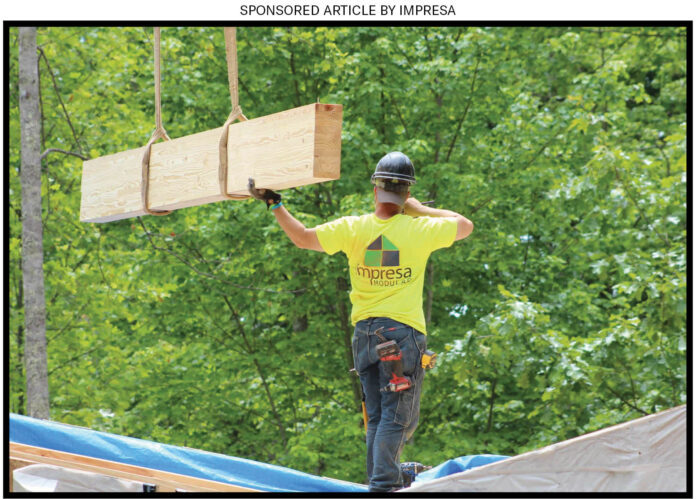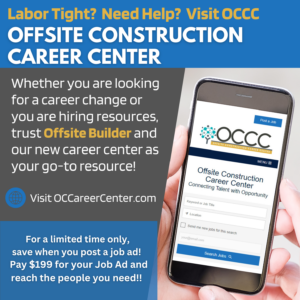This approach raises the odds of success for a new modular builder.
- Historically, franchise businesses have a long-term average success rate of 80% or more, compared to 30% or less for non-franchise businesses.
- A modular franchise eliminates risk by providing the franchisee with business systems, marketing support and supplier relationships.
- Modular manufacturers can be wary of independent startups, especially those with no modular experience. Being part of a franchise reduces that hurdle.
- While industry experience is not a requirement, the most successful franchise candidates will have a knack for using business systems to manage complex projects.
Statistics on small business failures are always sobering. According to the Small Business Administration, of all new businesses launched between 1994 and 2019, an average of just 67.6% were still standing two years later. Things got worse after that: the five-year survival rate was 48.9%, the ten-year survival rate 33.6%, and by year 15 only 25.7% of businesses were still in operation.
Those stats are for businesses in general — things are even tougher when one looks at the building industry. According to the Bureau of Labor Statistics, of the 69,296 private construction firms launched in 2001, only 56% were still in business three years later, only 26.6% made it to year 10, and only 17.2% survived for 20 years. That’s a failure rate of nearly 82.8%.
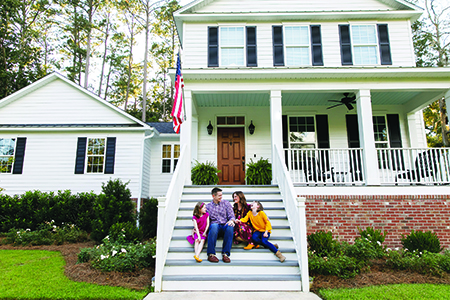
Businesses fail for a myriad of reasons that can include financing problems, ineffective management, lack of planning and insufficient cash flow. For the building industry, those challenges are compounded by immigration issues, volatile material prices and the ongoing labor shortage.
One way to raise the odds of success is to become part of a franchise. According to Investopedia, which pulls information from government data, “general statistics cite franchise failure rates at an average of anywhere from 10% to 20%.” In other words, an 80% success rate.
Why this higher rate of success? Reasons include the business systems, education and ongoing support that good franchisors provide to their franchisees.
“We give people business systems, a general ledger – chart of accounts for QuickBooks, access to pre-configured Builder Trend Construction management software, unparalleled sales and marketing systems, a CRM on the front end, as well as education and training,” says Ken Semler, President and CEO of the modular franchise company Impresa, which also connects franchisees with the factories that will build their homes. “This all has the effect of jumpstarting them seven years into the process.”
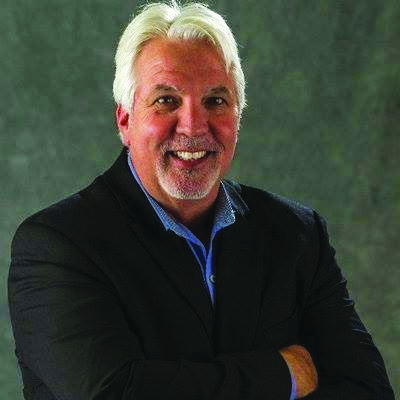
Photo courtesy of Impresa Modular
Jim Griffin, Director of Franchising Business Development for Impresa Modular, describes what they offer as “a business in a box.” He says that the systems and support the provide to franchisees help flatten the learning curve.
At this point, territories open to new Impresa franchisees extend from the Carolinas to Michigan, to New England. However, the company is working on expanding south to Florida and west to the Rockies in 2024. In fact, Semler spends much of his time developing supplier relationships in new territories.
Educators and Mentors
There aren’t many franchise opportunities in the world of new construction, according to Semler. The few available ones include AR Homes, Epcon Communities, and Alair Homes, all of which use conventional building methods. Impresa is the only modular homebuilding franchisor.
For those interested in modular homebuilding, a franchise is probably better than going it alone because (as noted above) there’s less risk than for someone starting from scratch. “One of the biggest reasons I started Impresa,” Semler says, “is that the industry doesn’t do a good job of training new-to-modular builders. We’re a franchisor, but we’re also mentors.”
By that he means that Impresa offers its franchisees ongoing support for any issue, and he says that franchisees take advantage of that support. “They don’t call when things are going well; they call when there are problems, and we’re here for them.”
Impresa also helps them with marketing. It captures customer leads via its own website and will also build individual sites for franchisees. “The average NAHB builder builds six homes a year,” says Semler. “How much time does that builder have to market, sell, learn new things? He’s busy building. We have a website presence that would cost more money than most builders are willing to pay.”
Griffin adds that, in addition to marketing support, Impresa also offers “online training systems, field training, home design plans, leads and access to a factory base.”

Building Knowledge
Griffin and Semler bring decades of experience to the business. Semler is President of the Modular Home Builders Association, as well as past Chair and current Vice Chair of NAHB’s Building Systems Councils. Griffin has experience as a homebuilder, as part owner of a modular factory, and as a real estate agent.
They’re familiar with homebuilding’s pain points and they know how to help franchisees navigate them. “Franchisees need to understand what happens when the house gets to the site. They need to know how to plan for a successful set day,” says Semler. “And when the modules are delivered to the site, they need to know how best to fit them together.”
Another important benefit that Impresa offers its franchisees is access to modular manufacturers. This can be a big hurdle for an independent startup. “Most factories don’t want to deal with new-to-modular builders because those people have to be trained,” says Semler. “We provide that training role, and factories really like it when we’re involved.”
Semler has created relationships with several factories. They commit to serving Impresa franchisees, and Impresa commits to sending them additional business as new franchisees come on board.
The Impresa team also helps franchisees navigate the difficult task of shipping modules over the road. “How do you coordinate getting big modules that are 60 to 70 feet long by 14 feet wide to a site?” Semler asks. “It’s a big issue and there’s a lot that goes into it.”
Then there’s the question of how to minimize problems when setting modules. “Set day, when the modules are placed on the foundation, is the day a single decision will cost or make you thousands of dollars. You’d better make the right decisions,” he continues.
For instance the cost of a crane, from the time it leaves the office until it gets back, is $6 to $10 a minute. “If it gets stuck in a driveway, you’re watching the meter tick. And what if it rains? What if a module can’t make a bend in the road? A typical contractor doesn’t consider these things.” Impresa’s training and ongoing support helps builders successfully plan for and execute this part of the job.
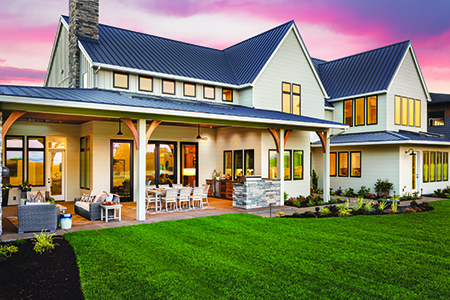
How it Works
According to Griffin, awarding a franchise is a multi-step process. After making the initial contact, a prospect fills out the needed forms, and reads through the Franchise Disclosure Document, or FDD. The FDD is a legal document developed by the US Federal Trade Commission, which is given to potential franchisees in every industry. It outlines the responsibilities of the franchisee and franchisor.
Once prospects have gone through the FDD, it’s time for The Ken Call. “That’s where they ask me questions and I ask them questions,” says Semler. Much of what he is looking for is an ability to become an effective project manager. “I want to see how organized they are. If they seem disorganized, they’re not a good candidate to be a modular builder.”
Both Griffin and Semler agree that project managers, remodelers and entrepreneurs who understand the real estate market tend to make the most successful franchisees. As Griffin says, “We’re looking for someone good at managing a process. They’re running a business, not swinging a hammer.”
Once on board, franchisees meet online each week in what amounts to a Master Mind group, with everyone sharing insights and expertise.
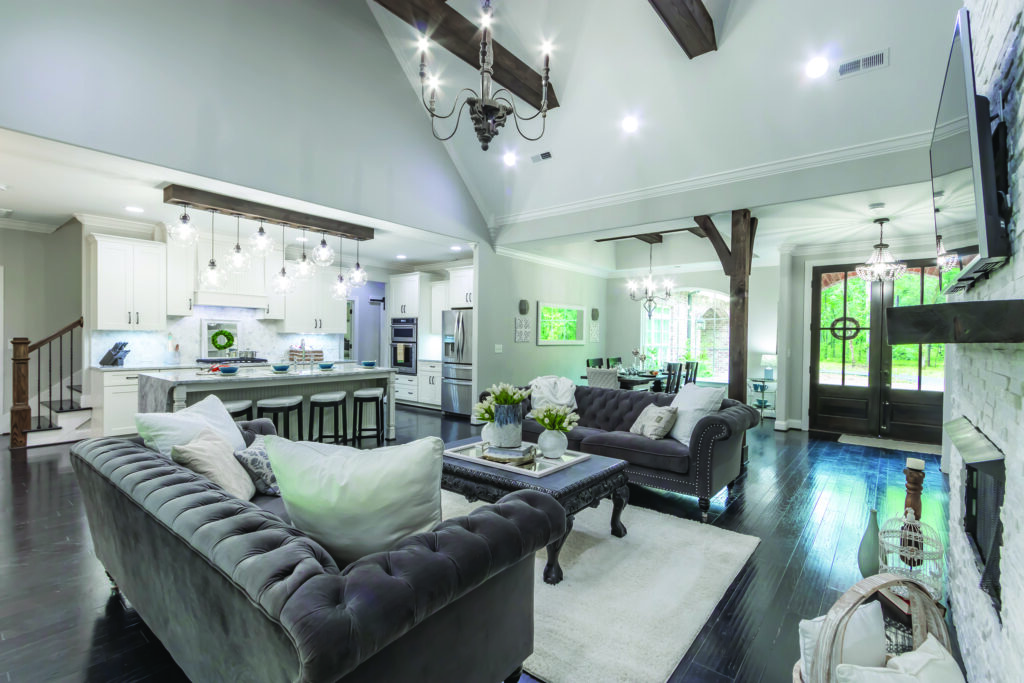
These discussions are driven by the franchisees. For instance, they might share home designs and ask others for advice on cost estimating. If they want to try a new material, they might ask for others’ opinions and experience. Many also bring a list of questions for Semler to answer.
As franchisees mature and gain experience, they tend to have fewer questions and are more able to help the new people. “We’re here to teach you to fish, not give you the fish,” Semler says. “We give you the relationship with the factories. We teach you about design and delivery.”
However, he says that the ultimate goal is to help franchisees develop the relationships and expertise they need to grow the businesses in their particular markets, which is, of course, what everyone wants. “We’ll hold your hand for as long as you need it then we’ll remove the training wheels.”
For more information on the Impresa opportunity or to schedule a call with Jim Griffin, please visit ImpresaModular Franchising.com.





